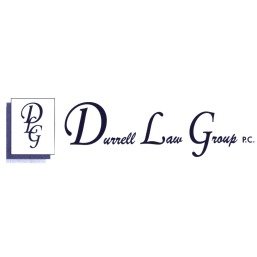Best Financial Services Regulation Lawyers in Anchorage
Share your needs with us, get contacted by law firms.
Free. Takes 2 min.
List of the best lawyers in Anchorage, United States
About Financial Services Regulation Law in Anchorage, United States
Financial Services Regulation in Anchorage, United States, is an essential aspect of the broader economic landscape. It involves a complex framework of laws, regulations, and policies that govern financial institutions, insurance companies, investment firms, and other entities involved in financial markets. These regulations are designed to ensure the integrity and stability of financial systems, protect consumers, and maintain market confidence. Anchorage, as part of Alaska, is subject to both federal and state regulations, each playing a critical role in shaping the local financial landscape.
Why You May Need a Lawyer
Engaging with financial services regulation law can be complex, and individuals as well as businesses might seek legal assistance for a variety of reasons. Common situations include:
- Compliance and regulatory issues relating to establishing or operating financial institutions.
- Disputes or litigation involving violations of financial regulations.
- Guidance on navigating the intricate web of federal and state financial regulatory statutes.
- Assistance in transactional matters involving mergers, acquisitions, or restructuring within the financial sector.
- Representation during investigations or audits by regulatory bodies.
Local Laws Overview
In Anchorage, Financial Services Regulation is influenced by both federal laws, such as those enforced by the Securities and Exchange Commission (SEC) and state-level regulations managed by Alaska’s Department of Commerce, Community, and Economic Development. Key aspects include consumer protection laws, securities regulations, and compliance requirements specific to financial transactions and the operation of financial entities. Anchorage's unique position within Alaska necessitates additional considerations, such as environmental compliances relevant to financial practices in the region.
Frequently Asked Questions
What are the primary regulatory bodies governing financial services in Anchorage?
The primary regulatory bodies include federal entities such as the SEC and the Consumer Financial Protection Bureau (CFPB), in addition to state-level agencies like the Alaska Division of Banking and Securities.
What kind of legal issues are common in financial services regulation?
Common issues include compliance failures, anti-money laundering violations, cybersecurity breaches, consumer protection violations, and disputes over the interpretation of financial contracts and regulations.
How can a lawyer assist with regulatory compliance?
A lawyer can provide expert guidance on adhering to applicable regulations, help draft and implement compliance programs, and represent businesses during inspections or audits by regulatory authorities.
Are there specific licensing requirements for financial services providers in Anchorage?
Yes, financial services providers must often obtain specific licenses from state regulatory bodies such as the Alaska Division of Banking and Securities and may also be subject to federal licensing where applicable.
How does Financial Services Regulation affect consumer protection?
Financial Services Regulation includes laws aimed at protecting consumers from unfair, deceptive, or fraudulent practices by financial institutions and requires transparent disclosure of information.
What legal recourse is available for consumers facing issues with financial services?
Consumers may file complaints with regulatory bodies, seek mediation or arbitration, or pursue litigation for remedies such as damages or contract rescissions.
How do federal regulations interplay with state regulations in Anchorage?
Federal regulations generally set broad standards that must be met nationwide, while state regulations can impose additional requirements tailored to local needs, creating a dual layer of obligations for financial services providers.
Is cybersecurity a concern in the financial regulation sector?
Yes, maintaining robust cybersecurity measures is crucial, and failure to protect sensitive data can result in significant legal penalties and reputation damage.
Can financial regulations change frequently?
Regulations can change due to new legislation, shifts in regulatory policy, and evolving industry standards, making it important to stay informed and adapted to current requirements.
What should I do if I suspect a violation of financial regulations?
If you suspect a violation, consider consulting with a financial regulation lawyer to understand your rights and explore potential legal actions or reporting mechanisms.
Additional Resources
For additional guidance, consider consulting the following resources:
- Alaska Division of Banking and Securities
- Securities and Exchange Commission (SEC)
- Consumer Financial Protection Bureau (CFPB)
- Financial Industry Regulatory Authority (FINRA)
- Local consumer protection offices and community legal aid organizations
Next Steps
If you require legal assistance in the realm of Financial Services Regulation, consider taking the following steps:
- Identify the specific area of Financial Services Regulation related to your concern.
- Seek a consultation with a specialized financial regulation attorney in Anchorage to discuss your case.
- Gather all relevant documentation and information related to your issue for the consultation.
- Evaluate the attorney’s advice and consider their experience, expertise, and proposed approach before proceeding.
- Utilize recommended resources and legal aid services if needed to ensure comprehensive understanding and compliance.
Lawzana helps you find the best lawyers and law firms in Anchorage through a curated and pre-screened list of qualified legal professionals. Our platform offers rankings and detailed profiles of attorneys and law firms, allowing you to compare based on practice areas, including Financial Services Regulation, experience, and client feedback.
Each profile includes a description of the firm's areas of practice, client reviews, team members and partners, year of establishment, spoken languages, office locations, contact information, social media presence, and any published articles or resources. Most firms on our platform speak English and are experienced in both local and international legal matters.
Get a quote from top-rated law firms in Anchorage, United States — quickly, securely, and without unnecessary hassle.
Disclaimer:
The information provided on this page is for general informational purposes only and does not constitute legal advice. While we strive to ensure the accuracy and relevance of the content, legal information may change over time, and interpretations of the law can vary. You should always consult with a qualified legal professional for advice specific to your situation.
We disclaim all liability for actions taken or not taken based on the content of this page. If you believe any information is incorrect or outdated, please contact us, and we will review and update it where appropriate.















